BY MARY MACKEEN ’23
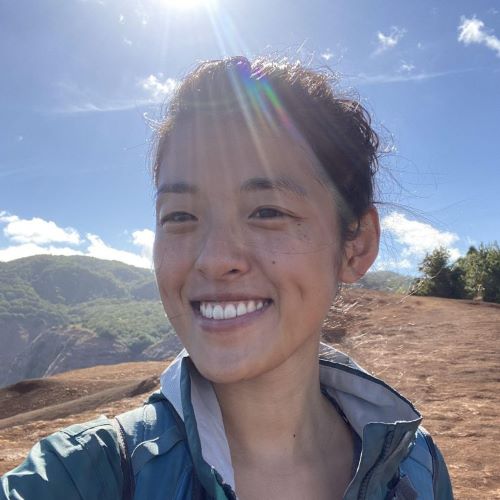
It’s a typical Friday afternoon at The Spa: students from all walks of campus life shuffle through the deli and out to the tables, chatting with friends about their day and finishing up work before the weekend. While many students are sighing in relief about putting the week’s classes behind them, Lani Fu’s Advanced Playwriting students are deep in conversation about this week’s lessons. With a syllabus chock-full of prolific playwrights and plenty of class time dedicated to creating and sharing new work, it’s no wonder my peers and I often find ourselves huddled around a too-small table in Case Center, eager to fan the sparks of theatrical creation.
Today, however, I am not at this weekly conference. Instead, I’m a few tables down, sitting across from Lani Fu herself. Although Lani kindly agreed to an interview with me for the JKB Living Newsletter, a passerby might think she was the interviewer – before I’d given her any questions, she asked me about my experiences at Skidmore. As a visiting professor, Lani is only here one day a week and therefore isn’t necessarily familiar with campus life. True to artist form, Lani was curious to explore and understand the world around her. The following is an approximation of our conversation, taken largely from memory.
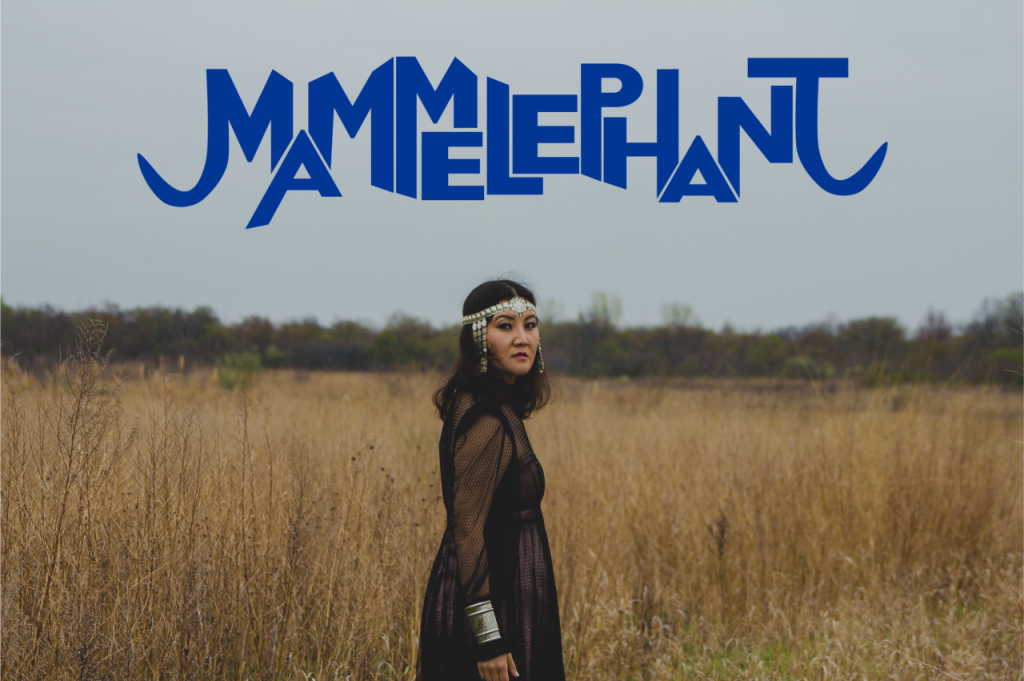
MM: So, tell me a little bit about your background.
LF: Well, my family moved to Virginia from China when I was five years old. I definitely had a hard time navigating identity and belonging, and I was torn about issues of assimilation. And I wasn’t able to articulate my feelings or experiences because I didn’t understand them myself – I mean, I was eight. So for a long time, I was lonely. I was always searching for a sense of belonging. When I started doing theater in middle school, that was the first time I felt like it really clicked, I’d really found it.
MM: What show was it?
LF: Father of the Bride.
MM: Ah. I think I’ve vaguely heard of that.
LF: Yeah, weird choice for middle schoolers, but it did the trick for me. Originally I thought I’d be an actor. Then when I went to Virginia Tech, I met different people who were doing all kinds of work, and I realized I had a lot more interest than just acting and that there were more ways of engaging with theater-making than just acting. It was very exciting. I started working with a theater and civic engagement ensemble called “Building Home” to bring stories by disenfranchised communities to local and state representatives. When I moved to New York, I volunteered with Superhero Clubhouse for a while until eventually they asked me to work on a piece they were doing at the time called Jupiter.
MM: And now, here you are.
LF: Here I am!
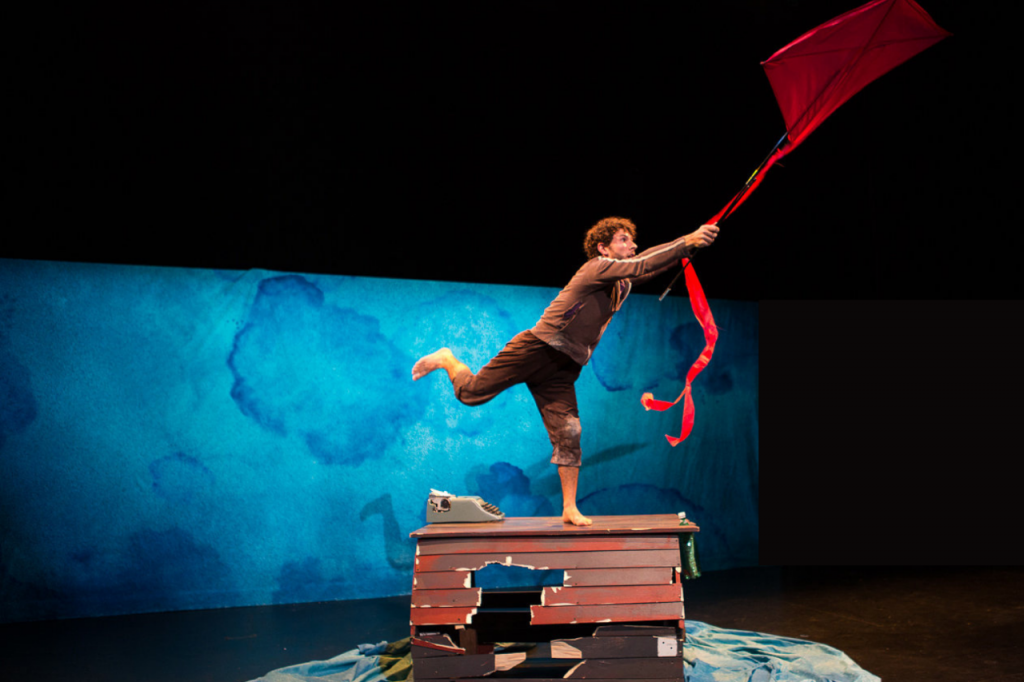
MM: So, my understanding of Superhero Clubhouse is that you do quite a bit of work with the theatrical and environmental education of young people, is that correct?
LF: Yes, one of our programs is BGT, or Big Green Theater, where we work mostly with elementary and high school students in New York City public schools.
MM: How has teaching college students been different, challenging, interesting, etcetera compared to working with much younger students?
LF: Well, there’s a lot less explaining and pre-setting. We can hit the ground running a bit more. But something I find myself wanting to say to students – both here and in the city, really students of any age – is “It’s all possible”. Sometimes I just wanna shake them by the shoulders and say “It’s all possible! It can all be done! Don’t limit yourself, dream as big as you possibly can!” You’d be shocked by how much can actually be accomplished that way.
MM: My next question was going to be “What advice do you have for young theater artists”, but I think you may have already answered it.
LF: Ha, that’s fair. No, I think one thing I would say to young artists is to go do…anything other than theater, really. (Laughs) That sounds bad.
MM: No, I know what you mean. You can’t make art unless you have something to make it about.
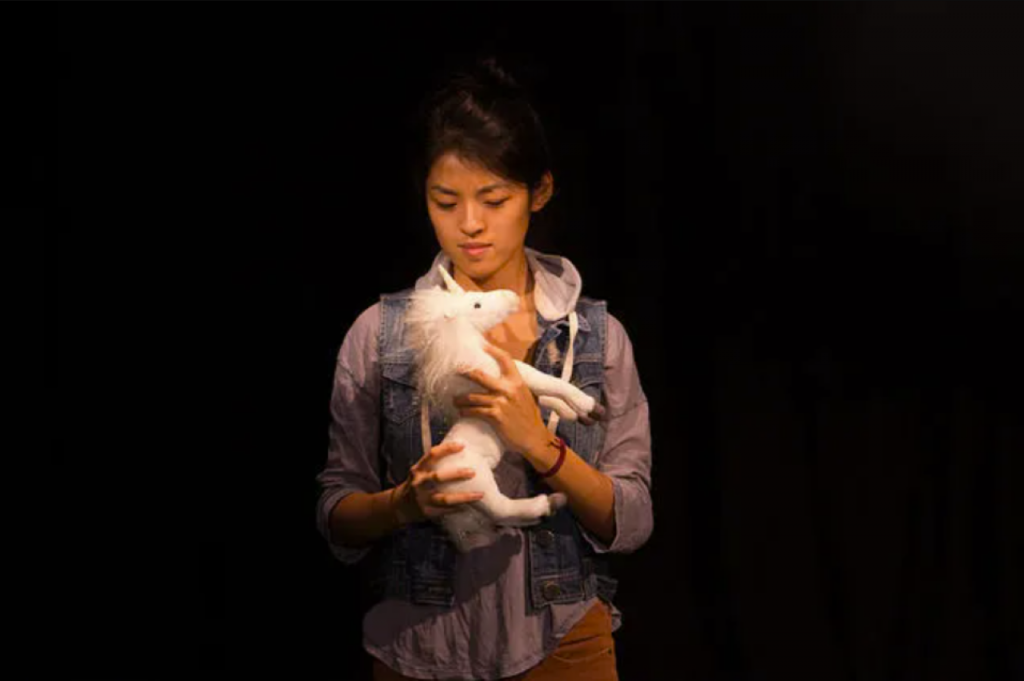
LF: Exactly! I think it’s so important for theater makers, especially young theater makers, to go out and have new experiences, try new things, meet new people, and pursue other disciplines. It will only make your work richer. You’ll figure out the technicalities as you go. Don’t get so attached to the idea of creating great art that you lose sight of why we make art in the first place.
MM: I couldn’t agree more. So, speaking of artists, which artists or works inspire you?
LF: Oh, that’s a good question. Well, I read a lot of…books? (Laughs)
MM: (Laughing) Yeah, I’ve heard of those.
LF: I read a lot of sci-fi and a lot of speculative fiction. I’m a big fan of Ursula K. Le Guin. I really like work that challenges what a ‘world’ can be. I also am really inspired by Mondo Bizarro; they’re a theater company out of New Orleans doing really great work, all very centered around community engagement. There was also a dance piece called “Sleeping Beauty and the Beast” that I saw many years ago by choreographer Katy Pyle. It was a retelling of the original story with a company of queer, disabled dancers. Although it wasn’t recent, the performance was deeply moving and it has stuck with me since. I also saw The Trees by Agnes Borinsky at Playwright’s Horizons recently, which was absolutely gorgeous.
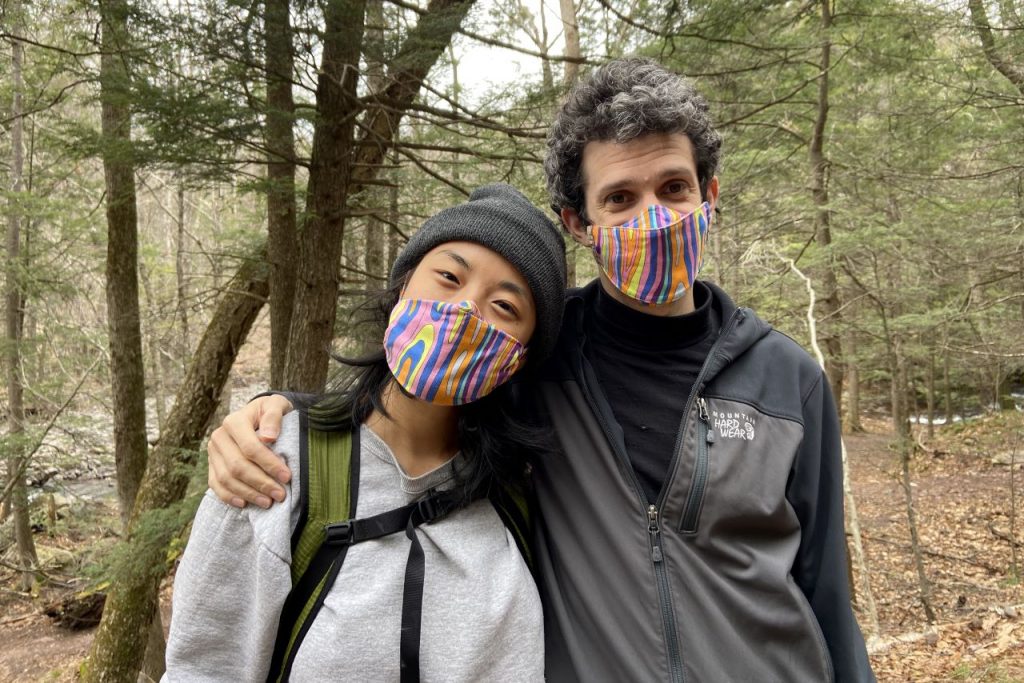
MM: Thank you. I’ll have to check those out. Alright, last question. So, I’m not sure if you’ve noticed, but there’s a phrase that gets used in the Skidmore Theater Department quite a bit: dream ballet.
LF: Dream ballet?
MM: Yeah, it’s kind of like…in a perfect world, in a world where there are no limits and endless resources and everyone gets along and holds hands and there are rainbows and butterflies.
LF: Okay, sure, I get what you mean.
MM: So, in your dream ballet, what would a Lani Fu-led piece at the JKB look like?
LF: Hmm…I think it would be something collaborative. I’d want to gather people with as many different ages, identities, and experiences as possible. I think the work itself would be guided by those collaborators, so I couldn’t necessarily speak to what it would look like. But definitely original, diverse, and very collaborative.
MM: Thank you so much.
LF: Thank you.
***
Mary MacKeen ’23 is a staff writer for the Skidmore Theater Living Newsletter
